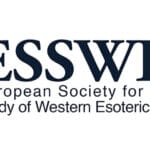
Home » Research » Current research projects » Research: John M. MacMurphy, RMA

Toward the end of his life, Isaac Luria (1534-1572), one of the most well-known figures in Jewish Mysticism, ascended to the eccentric community in Safed, Israel, and imparted his unique wisdom to a fellowship of roughly forty apprentices. This interaction has spurred what would become the most prominent kabbalistic tradition to date. What makes this trend so exceptional is that it funnels various disparate secret methods which preceded it and reconcile them into a single multi-faceted metaphysical system. However, despite its popularity, little research has been done to examine its approach, impact and relationship with Kabbalah Ma’asit (Practical Kabbalah) and its connection to other currents.
This project aims to remedy this academic oversight by exploring the wide spectrum of the early modern Lurianic oeuvre spanning from the writings of Luria himself and concluding with the publication of the De Revolutionibus Animarum (On the Revolutions of the Souls) in the Kabbala Denudata (The Kabbalah Unveiled), published in Frankfurt, Germany, by the efforts of Christian Knorr von Rosenroth (1636-1689) and his colleagues in 1684.
The scope of this inquiry covers not only known printed works such as the voluminous Etz Chayim (The Tree of Life), Sefer ha-Gilgulim (The Book of Reincarnations) and Sefer ha-Chizyonot (The Book of Visions) by Chayim Vital (1542-1620), one of Luria’s most prominent and prolific direct followers, but also compositions that received little attention such as the unpublished Kanfei Yonah (Wings of a Dove), by Moshe Yonah, one of the first students to capture the enigmatic teachings, and Sefer ha-Pe’ulot (The Book of Operations) – Vital’s magical-alchemical diary. In addition, emphasis is placed on numerous non-Jewish esoteric sources and many unpublished hand-written manuscripts preserved in libraries and archives around the world.
The analysis encompasses unprecedented considerations concerning the special interest these captivating mavericks exhibited with respect to occult philosophies, their open attitude toward magical practices and the import of alchemical precepts that were interpreted metaphysically and have influenced many Lurianic principles including the famous concept of Tikkun, or rectification.
Concerning praxis, specific sexual applications are also examined against the backdrop of the alchemically inspired framework of metempsychosis including “theurgical” methods, designed to draw holy souls into the adepts’ offspring, as well as non-procreative techniques tailored to aid the practitioners in their spiritual development, purify their soul and rectify the cosmos.
By evaluating the intellectual history of these controversial themes and how they were understood, integrated, and absorbed by other thinkers, including Christian audiences, this exploration provides new understandings of the bidirectional influence between Jewish and gentile occult milieus.
As part of the University of Amsterdam, our research falls under the umbrella of the Amsterdam School of Historical Studies (ASH) at the Faculty of Humanities.
As part of the Religious Studies unit the HHP centre participates in the interdisciplinary research group on Religious Dynamics and Cultural Diversity.
The presence in Amsterdam of the famous Bibliotheca Philosophica Hermetica, situated in the Embassy of the Free Mind, and of the rich material of the Amsterdam University Library’s Special Collections (Bijzondere Collecties) provides important research facilities for our staff. The HHP’s strong emphasis on historical research of primary sources is greatly advanced by these libraries and collections.
The HHP centre is an intrinsic part of a larger international network that promotes, creates and distributes peer-reviewed academic research in the interdisciplinary field of Western esotericism.
The European Society for the Study of Western Esotericism (ESSWE) was founded in Amsterdam in 2005, the staff at the HHP centre continues to be deeply involved with the further development of this international learned society.
Our staff has also been instrumental in setting up and running the leading peer-reviewed journal devoted to Western esotericism, Aries, and the Aries Book Series – both published by Brill under the auspices of the ESSWE.
An overview of dissertations completed at the HHP centre.
Would you to like to get in contact with our researchers or get more information about research at the HHP Centre?
The Center for History of Hermetic Philosophy and Related Currents (HHP) is part of the Faculty of Humanities at the University of Amsterdam. We are committed to the highest standards of critical academic scholarship, independent of any worldview.
Visiting adress:
Bushuis / Oost-Indisch Huis
Kloveniersburgwal 48
1012 CX Amsterdam
The Netherlands
Postal adress:
Postbus 1622
1000BP Amsterdam
Email: hermetica-fgw@uva.nl
The Center for History of Hermetic Philosophy and Related Currents (HHP) is part of the Faculty of Humanities at the University of Amsterdam. We are committed to the highest standards of critical academic scholarship, independent of any worldview.
Visiting adress:
Bushuis / Oost-Indisch Huis
Kloveniersburgwal 48
1012 CX Amsterdam
The Netherlands
Postal adress:
Postbus 1622
1000BP Amsterdam
Email: hermetica-fgw@uva.nl
The Centre for History of Hermetic Philosophy and Related Currents (HHP) is part of the Faculty of Humanities at the University of Amsterdam. We are committed to the highest standards of critical academic scholarship, independent of any worldview.
Visiting adress:
Bushuis / Oost-Indisch Huis
Kloveniersburgwal 48
1012 CX Amsterdam
The Netherlands
Postal adress:
Postbus 1622
1000BP Amsterdam
Email: hermetica-fgw@uva.nl
© HHP 2022 – by Digital Marketing Agency MIAX